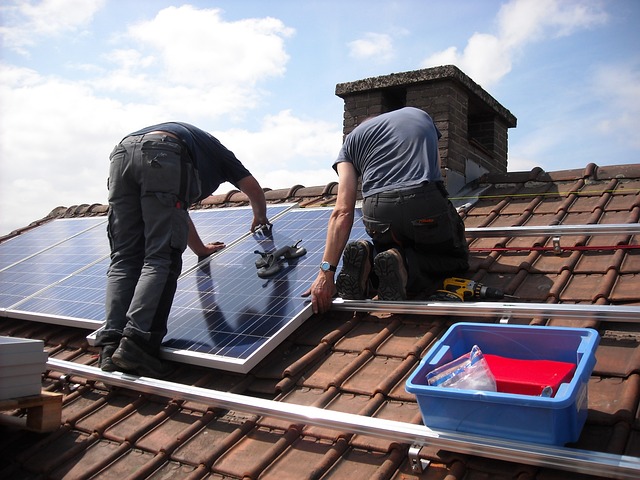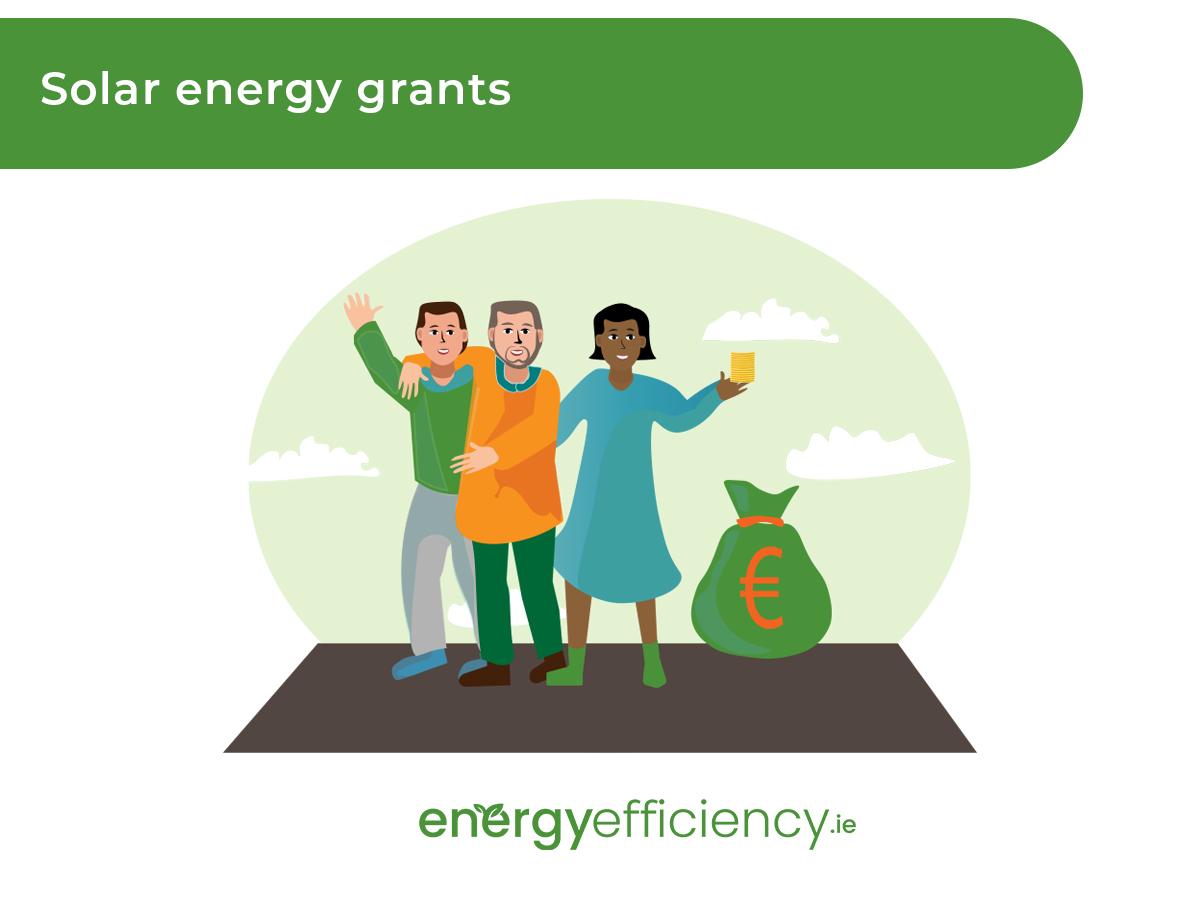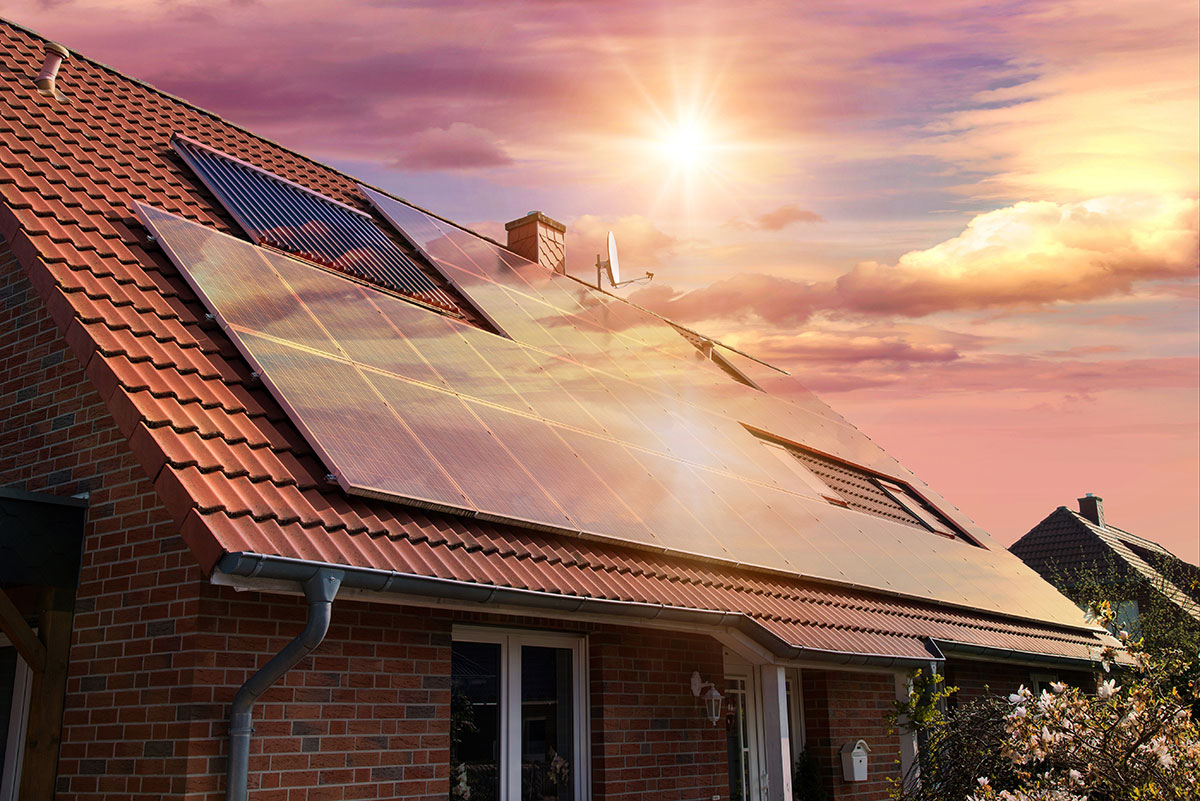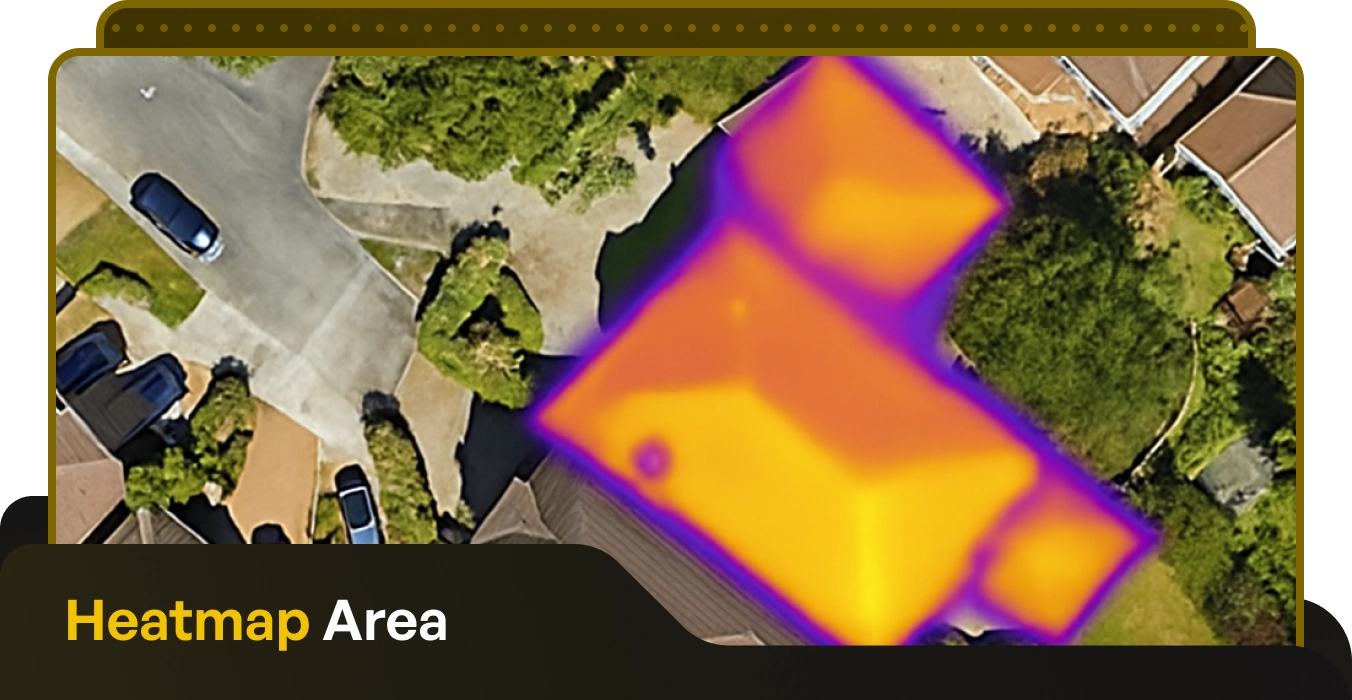Majority of Irish Households Considering Having Solar Panels Installed

Written by: Briain Kelly
Published: May 23, 2024
Last updated: October 21, 2025
Reading time: 4 mins
The vast majority of Irish households are seriously interested in having residential solar panels installed, but the high price point is still a barrier for many.
A survey of 2,955 Irish households by EnergyEfficiency.ie found that solar power is universally viewed positively by the Irish public, and that the majority of people are likely to have solar panels installed on their homes in the future.
The survey found that reducing energy bills is considered the greatest advantage of rooftop solar power, while the upfront cost of having solar panels installed is the greatest disadvantage.
A troubling fact found by the survey was that there is a lot of ignorance among the public about government support and incentives for solar panels, calling into question whether they have been properly advertised to the public.
Irish Households Likely to Install Solar Panels
Of those surveyed, 78% are homeowners, 12% are renting, 7% are living at home, with 3% having other living arrangements.
Among them, 20% of respondents already have solar panels installed. Homeowners are far more likely to have solar installed than people living in rented accommodation, with 99% of renters responding ‘No’ to if they already possessed solar.
The vast majority of respondents (83%) said that they would likely have solar panels installed on their homes in the future.
Of those 16.7% had immediate plans and were likely to install solar panels within the next 6 months. Another 33% said they would likely do so in the next 2 years. The remainder had more long term plans to get solar panels within the next 5 years (21.3%), or within 5+ years (29%).

Homeowners are far more likely to have immediate plans for solar panels, with 17.5% considering having them installed within 6 months, while renters are more likely to put the matter on the long finger, with 32.4% saying they had plans to get solar within 5 years or more.
James Dorrian, Managing Director of EnergyEfficiency.ie, said, “The most promising find in this survey is the strong interest the public has in solar, with the vast majority of homeowners at least considering getting solar panels installed”.
“It’s also good news that everyone who has had residential solar panels installed feels good about their decision, is saving money on their electricity bills, and would happily recommend it to others.”
Saving Money with Solar Panels
Of those surveyed who already have solar panels installed on their home, 100% responded that it had been a good financial decision, and that they were happy with their investment.
Solar panels were delivering savings of between €50 and €150 each month for people with systems costing €4k – €14k.
A small number of people surveyed had solar PV systems costing in excess of €15,000 installed, which resulted in savings on their energy bills of €200 to €500 monthly.

Pros and Cons of Solar Panels
The greatest advantage of solar panels given by the public is reducing energy bills (69.9%), environmental benefits (15.8%), and energy independence (9.1%).
Respondents with solar panels were more likely to cite their environmental benefits (17.4%) than who are without (15.4%). While those without solar panels were more likely to mention energy independence as their greatest advantage.
The greatest disadvantages of solar panels given are High upfront costs (63.5%), the suitability of the Irish climate (16.9%), fear of maintenance requirements (11.8%), and a lack of information on the topic (6.3%).
A noticeable difference between those with solar panels and those without is that people who already have solar panels installed were far less likely to have concerns about the suitability of the Irish climate.
This suggests that fears about whether Ireland is suited for solar panels are more prevalent among people who have yet to take the plunge, and that those concerns may be overblown.
“Price is still the biggest obstacle to mass adoption of residential solar. It’s clear that solar panels will pay for themselves in a fraction of their overall lifespan, but that doesn’t make it any easier for someone to pay €4,000 to €10,000 up front,” James Dorrian said.
“With that in mind, it is counterintuitive for the government to cut the SEAI grant support to help homeowners with the cost of solar. At the very least it should be maintained at its current level, or better yet, increased further.”
“More effort should also be put into making the public aware of the grant for solar panels, and other supports which could help incentivise people who are still having doubts about investing in solar.”

Government Support for Solar Panels
The SEAI offers a direct grant payment available to all homeowners to help with the cost of solar PV. The grant currently pays out a maximum of €2,100 after being reduced from €2,400 at the start of this year.
The government has stated that the grant payment will continue to be cut by the same amount each year due to the falling cost of solar panels making it unnecessary.
This is one of a number of government initiatives meant to make solar PV more affordable and attractive. Others include 0% VAT on the supply and installation of solar panels introduced in 2023.
Excess electricity generated by solar panels can also be sold back to the grid, with up to €400 earnings allowed tax-free. Planning permission is also no longer required for rooftop solar panels in the vast majority of cases.

However, these benefits and incentives are unknown to a significant amount of the population, even the vast majority in some cases.
Just 17% of respondents said that they had heard of all the benefits listed above, while 16% answered that they were unaware of any of them
The SEAI grant system is by far the most well known solar incentive (54%), with very few people aware of the 0% VAT rate (6%), tax free earnings from selling surplus electricity (4%), and the removal of planning requirements (3%).
“There’s not much benefit in making solar panels cheaper, more lucrative, and less hassle to install if people simply aren’t aware of these barriers being removed,” James Dorrian said.
“Better communication is needed across the board on both the huge number of homes in Ireland which are suitable for solar panels, the savings they can deliver for Irish households, and the many supports there to help with them.”
See the full results of Energy Efficiency Ireland’s Solar Survey.
Majority of Irish Households Considering Having Solar Panels Installed
Published: May 23, 2024
Last updated: October 21, 2025

Written by: Briain Kelly
Reading time: 4mins
The vast majority of Irish households are seriously interested in having residential solar panels installed, but the high price point is still a barrier for many.
A survey of 2,955 Irish households by EnergyEfficiency.ie found that solar power is universally viewed positively by the Irish public, and that the majority of people are likely to have solar panels installed on their homes in the future.
The survey found that reducing energy bills is considered the greatest advantage of rooftop solar power, while the upfront cost of having solar panels installed is the greatest disadvantage.
A troubling fact found by the survey was that there is a lot of ignorance among the public about government support and incentives for solar panels, calling into question whether they have been properly advertised to the public.
Irish Households Likely to Install Solar Panels
Of those surveyed, 78% are homeowners, 12% are renting, 7% are living at home, with 3% having other living arrangements.
Among them, 20% of respondents already have solar panels installed. Homeowners are far more likely to have solar installed than people living in rented accommodation, with 99% of renters responding ‘No’ to if they already possessed solar.
The vast majority of respondents (83%) said that they would likely have solar panels installed on their homes in the future.
Of those 16.7% had immediate plans and were likely to install solar panels within the next 6 months. Another 33% said they would likely do so in the next 2 years. The remainder had more long term plans to get solar panels within the next 5 years (21.3%), or within 5+ years (29%).

Homeowners are far more likely to have immediate plans for solar panels, with 17.5% considering having them installed within 6 months, while renters are more likely to put the matter on the long finger, with 32.4% saying they had plans to get solar within 5 years or more.
James Dorrian, Managing Director of EnergyEfficiency.ie, said, “The most promising find in this survey is the strong interest the public has in solar, with the vast majority of homeowners at least considering getting solar panels installed”.
“It’s also good news that everyone who has had residential solar panels installed feels good about their decision, is saving money on their electricity bills, and would happily recommend it to others.”
Saving Money with Solar Panels
Of those surveyed who already have solar panels installed on their home, 100% responded that it had been a good financial decision, and that they were happy with their investment.
Solar panels were delivering savings of between €50 and €150 each month for people with systems costing €4k – €14k.
A small number of people surveyed had solar PV systems costing in excess of €15,000 installed, which resulted in savings on their energy bills of €200 to €500 monthly.

Pros and Cons of Solar Panels
The greatest advantage of solar panels given by the public is reducing energy bills (69.9%), environmental benefits (15.8%), and energy independence (9.1%).
Respondents with solar panels were more likely to cite their environmental benefits (17.4%) than who are without (15.4%). While those without solar panels were more likely to mention energy independence as their greatest advantage.
The greatest disadvantages of solar panels given are High upfront costs (63.5%), the suitability of the Irish climate (16.9%), fear of maintenance requirements (11.8%), and a lack of information on the topic (6.3%).
A noticeable difference between those with solar panels and those without is that people who already have solar panels installed were far less likely to have concerns about the suitability of the Irish climate.
This suggests that fears about whether Ireland is suited for solar panels are more prevalent among people who have yet to take the plunge, and that those concerns may be overblown.
“Price is still the biggest obstacle to mass adoption of residential solar. It’s clear that solar panels will pay for themselves in a fraction of their overall lifespan, but that doesn’t make it any easier for someone to pay €4,000 to €10,000 up front,” James Dorrian said.
“With that in mind, it is counterintuitive for the government to cut the SEAI grant support to help homeowners with the cost of solar. At the very least it should be maintained at its current level, or better yet, increased further.”
“More effort should also be put into making the public aware of the grant for solar panels, and other supports which could help incentivise people who are still having doubts about investing in solar.”

Government Support for Solar Panels
The SEAI offers a direct grant payment available to all homeowners to help with the cost of solar PV. The grant currently pays out a maximum of €2,100 after being reduced from €2,400 at the start of this year.
The government has stated that the grant payment will continue to be cut by the same amount each year due to the falling cost of solar panels making it unnecessary.
This is one of a number of government initiatives meant to make solar PV more affordable and attractive. Others include 0% VAT on the supply and installation of solar panels introduced in 2023.
Excess electricity generated by solar panels can also be sold back to the grid, with up to €400 earnings allowed tax-free. Planning permission is also no longer required for rooftop solar panels in the vast majority of cases.

However, these benefits and incentives are unknown to a significant amount of the population, even the vast majority in some cases.
Just 17% of respondents said that they had heard of all the benefits listed above, while 16% answered that they were unaware of any of them
The SEAI grant system is by far the most well known solar incentive (54%), with very few people aware of the 0% VAT rate (6%), tax free earnings from selling surplus electricity (4%), and the removal of planning requirements (3%).
“There’s not much benefit in making solar panels cheaper, more lucrative, and less hassle to install if people simply aren’t aware of these barriers being removed,” James Dorrian said.
“Better communication is needed across the board on both the huge number of homes in Ireland which are suitable for solar panels, the savings they can deliver for Irish households, and the many supports there to help with them.”
See the full results of Energy Efficiency Ireland’s Solar Survey.
Solar Energy Saves Households Thousands in Electricity Costs
Take our 2-minute questionnaire and find affordable solar options to suit your budget and lifestyle.



